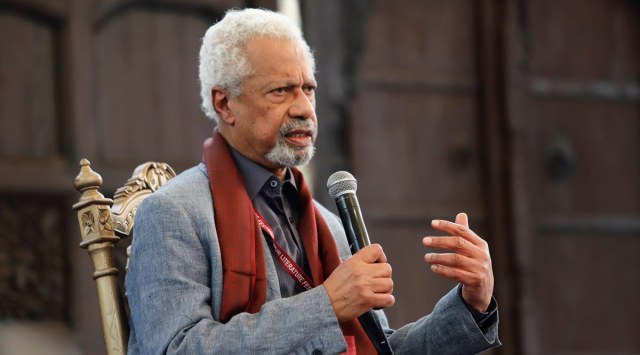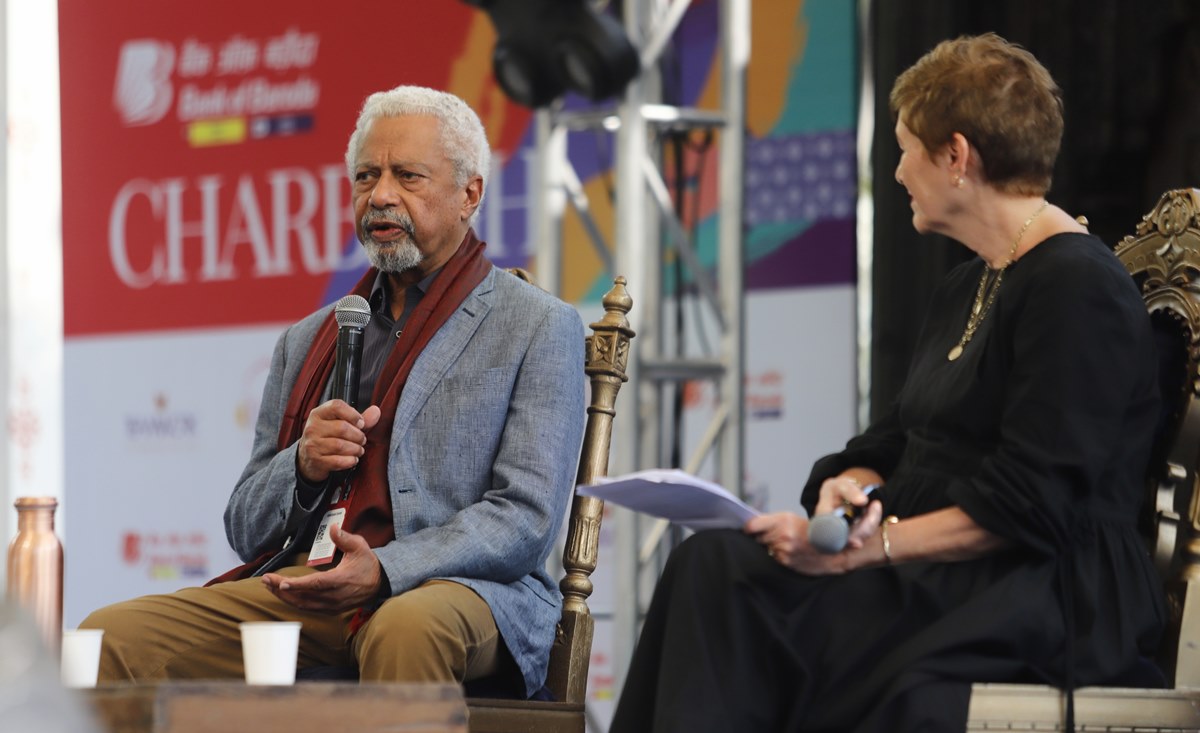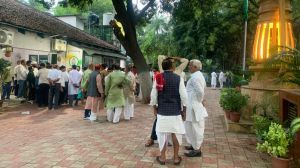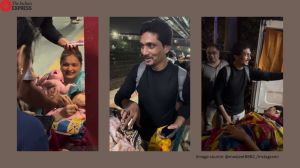‘The world is more cruel to immigrants than it used to be’: Abdulrazak Gurnah at JLF 2023
The Nobel Laureate for 2021 on the anti-immigrant rhetoric coming from the UK, his Tanzanian-British identity, and changing tastes in literature
 Nobel laureate Abdulrazak Gurnah speaks during a session with Alexandra Pringle at Jaipur Literature Festival on January 20. (Express photo by Chitral Khambhati)
Nobel laureate Abdulrazak Gurnah speaks during a session with Alexandra Pringle at Jaipur Literature Festival on January 20. (Express photo by Chitral Khambhati) Comparing his experience of racism as a young Tanzanian immigrant in the United Kingdom in the 1960s to present-day attitudes to immigration and migration, Nobel Prize for Literature winner in 2021, Abdulrazak Gurnah said that the world is “more cruel” to immigrants than it used to be, adding that “words used by the United Kingdom government, particularly those responsible for this issue, have been monstrous.” Gurnah was speaking at Jaipur Literature Festival 2023.
Gurnah, whose work has revolved around themes of colonialism and its aftermath, especially in East Africa, and who has lived in the UK for decades now, said that earlier the country had a “self-assurance” from its people who still lived at the center of an empire, but now the UK is a “troubled place” where there is “uncertainty.” He added, “Brexit demonstrates that. I think now there is a different way of speaking about foreigners.”
On the role of memory in his writing, he said that not forgetting the events of his life and country is important to him, and memory aids in that effort. “What happens with authoritarian states is that a new narrative is made and forced on you in order to make everything work the way the authority wants. As a writer, it’s important to not submit to that. To keep the memory of it alive.”
 Nobel laureate Abdulrazak Gurnah speaks during a session with Alexandra Pringle at Jaipur Literature Festival on January 20. (Express photo by Chitral Khambhati)
Nobel laureate Abdulrazak Gurnah speaks during a session with Alexandra Pringle at Jaipur Literature Festival on January 20. (Express photo by Chitral Khambhati)
Gurnah added that literature festivals help in “opening things up” between borders and often promote local writers, bolstered by the differing priorities of the organising country: “I was at a festival in Nairobi and most of the writers were African. At JLF, there are probably one or two. That’s good because it generates a cultural sharing of books which doesn’t only celebrate people who have already become successful.”
The author of Paradise, a 1994 novel about a Tanzanian boy who travels in caravans, witnesses World War I and is forcibly conscripted into an army, and By the Sea, a 2001 work about a man called Saleh Omar who tries to enter the United Kingdom on a fake passport, also mentioned that many of his stories have protagonists named after characters in the Bible or Qur’an because of the similarities in the stories of Abrahamic religions. “The same figures appear,” he said. “Inflections of characters may be there, but the name Dawood is like David, Yusuf like Joseph… But there’s no deliberate effort to draw a connection there.”
Reflecting on his changing tastes in literature over the years, Gurnah said that when he’s moving house, he retains only books that he can reread and discards the rest. “That’s a good test for what’s important to me,” he said and added, “For example, I’ve kept all my Dickens and J M Coetzees.”
📣 For more lifestyle news, follow us on Instagram | Twitter | Facebook and don’t miss out on the latest updates!
Photos






- 01
- 02
- 03
- 04
- 05

























